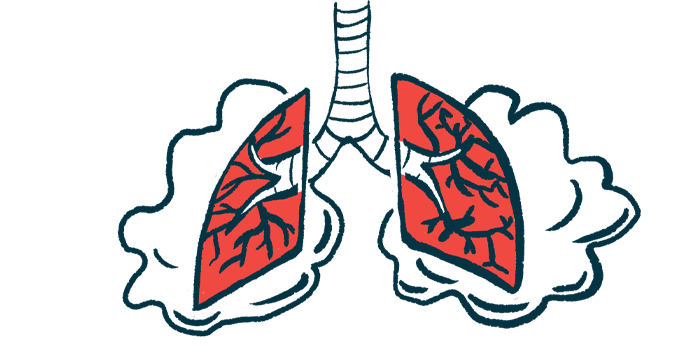Efzofitimod Granted Orphan Drug Designation in US for Lung Disease
Written by |

The U.S. Food and Drug Administration (FDA) has granted orphan drug designation to efzofitimod (ATYR1923) to treat interstitial lung disease (ILD) in people with systemic sclerosis (SSc).
The therapy was developed by aTyr Pharma for treating severe diseases affecting the lungs.
Efzofitimod was designated as an orphan drug for pulmonary sarcoidosis — a type of ILD that results in clumps of inflammatory cells building up in the lungs — earlier this year based on the positive findings of a Phase 1b/2a clinical trial (NCT03824392).
According to aTyr, the recent orphan designation in SSc was supported by that trial data along with findings from SSc animal models.
Orphan drug status is given to treatment candidates with therapeutic potential for people with rare diseases, or those affecting fewer than 200,000 people in the U.S. The designation is meant to speed the therapy’s development by providing regulatory support and financial incentives. The designation also grants the treatment seven years of market exclusivity, if it’s approved.
“We are very pleased to receive orphan drug designation for efzofitimod for SSc, which marks the second such designation for our efzofitimod clinical program,” Sanjay S. Shukla, MD, president and CEO of aTyr, said in a press release.
ILD in people with SSc is characterized by inflammation and buildup of scar tissue (fibrosis) in the lungs, leading ultimately to lung damage and impairment if left untreated. Similar features are observed in pulmonary sarcoidosis, suggesting that efzofitimod could be effective for both conditions.
Efzofitimod is an intravenous (into the vein) therapy designed to suppress damaging immune responses. It does this by modulating a protein called neuropilin-2, which resides on immune cells that are implicated in both SSc and sarcoidosis, where it promotes inflammation.
In animal models of SSc, efzofitimod was able to reduce lung and skin fibrosis as well as or better than anti-fibrotic therapies nintedanib (sold as Ofev by Boehringer Ingelheim) and pirfenidone (marketed as Esbrietfoder by Genentech), aTyr reported.
While clinical trials of the treatment haven’t been conducted in SSc patients, results from the Phase 1b/2a trial in people with sarcoidosis showed that monthly intravenous infusions of efzofitimod for at least six months were safe and well tolerated.
The highest tested dose (5 mg/kg) led to the greatest improvements in lung function, along with reductions in shortness of breath, cough, and fatigue compared with a placebo.
The treatment was also able to reduce corticosteroid use by 58%. Corticosteroids are used to treat both sarcoidosis and SSc, but can result in significant side effects, and are often not well tolerated for long-term use.
“The data we have presented in animal models of SSc along with the positive findings reported from our recent Phase 1b/2a study in pulmonary sarcoidosis patients suggest that efzofitimod has the potential to be a new treatment option that resolves inflammation and subsequent fibrosis in those living with SSc-ILD,” Shukla said.
“We look forward to exploring the potential expansion of our efzofitimod clinical program into other forms of ILD with high unmet need where this novel therapeutic may be able to improve patient outcomes,” Shukla added.





